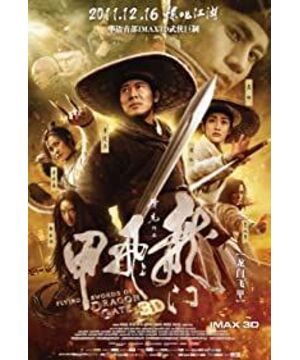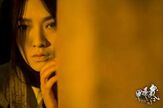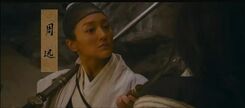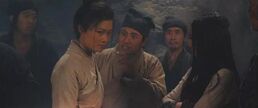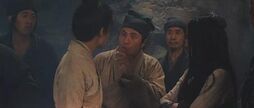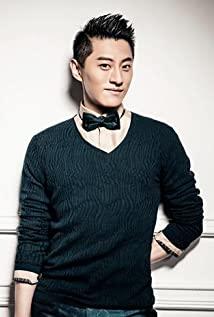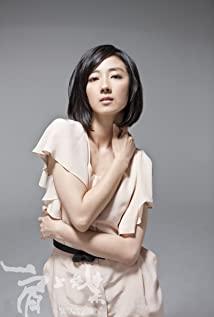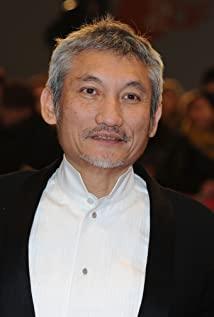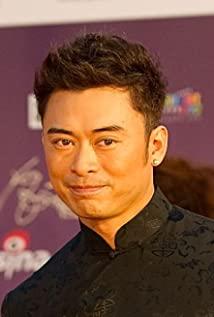However, the two films were released at the same time, one director from Hong Kong and Taiwan, one director from mainland China, one selling the new concept of 3D martial arts, and one retelling the old theme of the fall of Nanjing. It is impossible to compare them together. If we really want to judge pros and cons, what standard should we set? It's definitely not fair to just look at the box office and word of mouth, for the reasons mentioned above.
Personally, I am a fan of martial arts, not only martial arts movies, but also martial arts novels, martial arts comics, and Tsui Hark. How many years have you been in contact with movies, and how many years have you watched martial arts movies. So speaking, you can also call yourself a senior martial arts movie audience without modesty. Generally speaking, martial arts movies need to show action scenes with small scenes and fast rhythms in form. This is an unspoken rule - because the martial arts in the movie have a large degree of fantasy and surrealism, such as "Qinggong". The concept must not be shown in a large panorama, otherwise it will be like Ling Yanqiu's shot of turning over from the iron rope on the river, which will easily make people play. Of course, there are exceptions to everything. For example, Wong Kar-wai used high-speed photography and then slowed down the shutter speed to form a trailing rhythm to express the slow rhythm. Or, like Li An's design for each take-off of Yu and Yu's Qinggong, it is clearly visible. Focus on showing a big panorama, etc., but the purpose of these methods is to make the audience ignore it because they can't see clearly, or be convinced because they can't see clearly. Apart from these special cases, most audiences like me who have been immersed in martial arts movies since childhood have long been accustomed to the martial arts action and fast editing in the golden age of Hong Kong, and I am afraid that the sensory satisfaction of action scenes has "used to be difficult for the sea".
Leaving aside subjective expectations and stereotyped movie viewing habits, this time "Dragon Gate" does give people a sense of lack of stamina. I believe that audiences who have come from the era of classic Hong Kong films should feel that the film is telling a story. The characters are perfunctory and impetuous, and in many places they even directly use lines to show the characters' personalities and important plots, and most of the lines themselves are simple and direct, rude and out of logic. The most important martial arts instruction is extremely inadequate (because the 3D effect requires a single shot length of not less than 7 seconds, which makes fast editing impossible. In this case, the martial arts finger design is different from the previous action length to make up for it. Past experience has been Unable to meet the needs of 3D), coupled with the special effects stimulation brought by the new technology of 3D, trying to use the full-screen darts to replace the former boxing style and freehand brushwork, resulting in "Dragon Gate Flying Armor" without the design of "New Dragon Gate Inn" The exquisite martial arts movements do not have the elegant and unrestrained poetic scenes of "A Chinese Ghost Story". In a word, Tsui Hark is not serious. It is not the first time that Tsui Hark made such a mistake of compromising the lens language with the special effects technology. Fans who have watched "Shushan Biography" should still remember the loss and disappointment back then? Regarding this point, I really want to criticize the Hong Kong directors going north. Why have the Hong Kong films that swept the market in the past few years have become less and less popular? Don't blame the investors and the strict censorship system. Have you seen the new "33 Days of Broken Love"? It was a movie that couldn't even be called a movie, but its results weren't blown. I also hope that Hong Kong filmmakers can regain their professional spirit and put more patience and sincerity in the film.
In contrast, Zhang Yimou's "Thirteen Hairpins" has a lot to be commended for its production, such as the exquisite composition of the picture that can draw geometric function lines, the rhythm control refined to the frame, the almost genius image design, and Well-chosen actors——Speaking of which, I don’t want to say anything about the actors in Longmen. Although they are all very good actors, let’s take a closer look. They are not in those roles at all, and there is no tacit understanding at all——I try to create A perfectly seamless interrogation system. Even if I sit in the movie theater with a critical attitude in advance, I really feel that Laomouzi works slowly and works hard, and his sensational skills are at home.
Compared with the highly refined mirror language system of "Thirteen Hairpins", "Dragon Gate" is simply a B-level film produced by A-level. However, as a creative work with cultural connotations, the perfection of the form cannot be equal to the height of the work itself. Let's look at the ideological realm of the two films from one perspective: women, or gender (gender, not sex) from the perspective of men.
"Thirteen Hairpins" is limited by the subject matter and must create a group of very feminine characters to complete the narrative. However, the "feminization" of character creation does not actually affect the narrator's respect for women in the process of expression. For example, there is a film called "Heroes Behind the Enemy", which tells the story of five women with different styles of women and different social status who form a secret service team. The story shows the narrative object of "woman" very rationally and equally. Our Zhang Yimou, however, treated the prostitutes in the story in a way of extreme obscene, peeping, and ravaging fantasies. In a discussion with a friend before, I said that Zhang Yimou was a Chinese man in the post-feudal era, and told this story about the sacrifice of prostitutes for female students. Friends argued that the story was told by Yan Geling, not Zhang Yimou's business. I said that since Zhang Yimou used this book, it proves that he agrees - at least in the movie, we did not see his criticism. What Zhang Yimou is inferior to Yan Geling is that the story in Yan Geling's original work has always been in a state where a group of Chinese people hiding in foreign churches discriminated against each other and at different levels of discrimination. The prostitutes spontaneously organized to save the female students. Zhang Yimou erased important discriminatory groups and put in a man who was inspired by personal heroism. The story eventually turned into a prostitute who became a tool to save the female student, and the task of successfully saving the female student still fell on this man. . This structure has a strong American ideological color. Moreover, the image building of prostitutes, from character modeling to words and deeds to gestures, symbolizes women as a kind of pornographic symbol and encodes them into the patriarchal discourse system. In Zhang Yimou's hands, women are objects of desire. Although these prostitutes undertake important narrative tasks, the direction of the narrative is completely controlled by the invisible pair of "men's eyes" behind the screen.
Let's look at Tsui Hark's "Dragon Gate". At this level, Tsui Hark's realm is far higher than Zhang Yimou. The women shown in "Dragon Gate" are not women, and men are not men. The background of the story is set in the era when eunuchs were in power in the Ming Dynasty. Eunuchs were originally a role that was deprived of their social gender; while chivalrous men were forbidden by force, and the children of the rivers and lakes who were free from life and death in the sword, light, sword and shadow are naturally more free from men and women, that is, ignoring gender. From the shapes and settings of several protagonists, we can also see this kind of deliberately blurred gender boundaries: for example, Ling Yanqiu, who is androgynous, Yuhuatian, who is asexual, and the only sexually attractive Buludu is not male at all. The female image in desire, Su Huirong, who has the most strong gender characteristics, does not take off and even has a big belly, and finally presents directly with the face of a snake, scorpion and eagle claws. If we let a Westerner look at the makeup photos of the characters in "Dragon Gate", he must not be able to tell which of these neutral Asian faces is male and which is female. Tsui Hark's approach undoubtedly breaks the social gender barrier of the traditional "second sex" division, and is an expression that transcends gender restrictions. This kind of aesthetic realm that destroys the erotic fantasy of women in male-dominated discourse and deliberately blurs the traditional gender boundaries is far beyond the reach of directors with mainland cultural backgrounds such as Zhang Yimou.
Even the relationship between the two sexes, Tsui Hark also downplayed it into a transparent background: the relationship between Ling Yanqiu and Zhao Huai'an was only one sentence "that's it"; the affair of Feng Li Dao was only two slaps. "Only talk about business, not about feelings." Doesn't it mean that the libido of man is constant? A child's love is short, but a hero's spirit can be long. The children of Jianghu are not rigid about gender, let alone the relationship between the two sexes, and they come and go without any worries. This is the real Jianghu, and it is the Xu-style martial arts that audiences from the Hong Kong film era expect to see—this is why despite the "Dragon Gate" is not satisfactory, I still love him to the core.
As a genre film, "Dragon Gate" is very difficult to express profound ideological connotations. Especially when the martial arts films were upgraded to the philosophical realm by Ang Lee, it was even more difficult to break the record. But this time, I insist that "Dragon Gate", which is difficult to add profound connotations, is far more profound than "Thirteen Hairpins", which is very easy to express deep meaning but fails.
A man's attitude towards women can best reflect his state of mind - this is not why I say this as a woman, we think this way: a man, standing on the level that has been endowed with a sense of gender superiority since ancient times, can actually Eliminating the concept of gender hierarchies to face objects of the opposite sex discriminated against by society is actually a state of transcendence, equality and freedom, and it is the realm that a real modern human civilization should have. From the gender aesthetics in Tsui Hark's films, to his (previously publicly admitted) wife Shi Nansheng, who is also bisexual, I really think Old Monster is an amazing man. As for Zhang Yimou, who is like a local rich man, who is looking for big girls everywhere, everyone knows it, so I won't say anything.
View more about Flying Swords of Dragon Gate reviews


